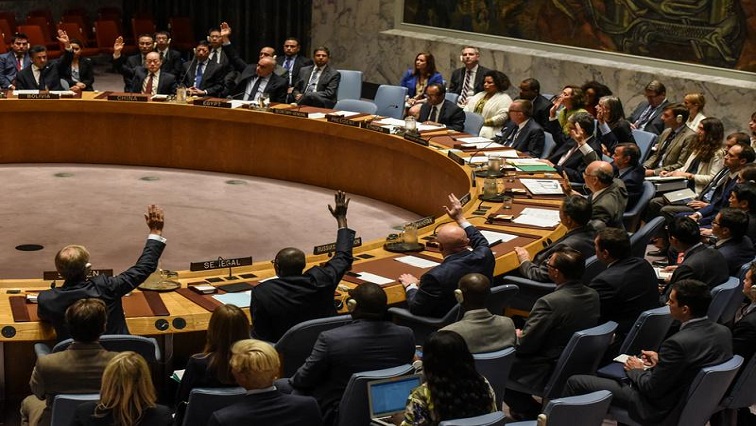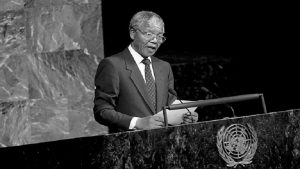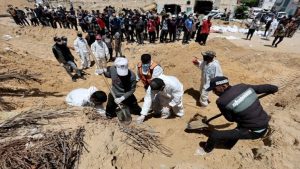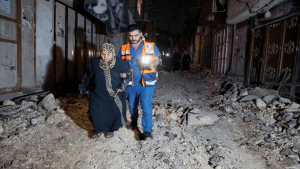South Africa has called for the Security Council to demonstrate consistency in its approach to the Israeli-Palestinian question, urging members to act to promote peace between the two sides.
Ambassador Jerry Matjila was speaking during the monthly Council meeting on the subject where UN briefers again cautioned that the prospect of a sustainable peace was fading as the spectre of violence and radicalism grows.
In his briefing, the Special Coordinator for Middle East Peace informed the Council that unilateral measure, continuing violence and financial pressures were exacting a heavy toll on Palestinian society and undermining the foundations of peace.
Matjila lamented the withdrawal of the over two-decades long international civilian observer mission in the flashpoint West Bank city of Hebron after Israel’s Government declined to renew its mandate.
He also called the Council out for its inconsistency over the long-standing conflict, particularly in enforcing its 2016 resolution that Israeli settlements constitute a flagrant violation of international law.
“We wish to reiterate our call for the submission of timely written reports by the UN Secretary-General to the Security Council on its implementation of resolution 2234 every three months, in order for progress to be adequately monitored.”
“This Council receives written reports on other matters that it is seized with, and the situation in Palestine should be no different. We must not allow the decisions made by the Security Council to be undermined and blatantly violated in some cases.”
The UN top official in the region pointed to difficulties around the reconciliation of Palestinian factions, warning of a further drift away from the realization of a negotiated two-state solution.
Nickolay Mladenov is the Secretary General Special Coordinator for Middle East Peace who called for leadership in the region.
“On 27 January the Fatah Central Committee recommended the formation of a new government comprising PLO factions and independent figures.
On 29 January, Prime Minister Hamdallah’s cabinet submitted its resignation. Consultations on the way forward continue, including on holding long overdue legislative elections.”
“Hamas and the other factions have called, instead, for the formation of a government of national unity with the task of organizing legislative, presidential and Palestinian National Council elections.
Elections conducted in line with Palestinian laws and with established international democratic standards throughout the occupied Palestinian territory may be the only way out of the current internal political impasse.”
With concerns raised that the situation in occupied territories, particularly Gaza where Hamas governs amidst severe Israeli and Palestinian Authority restrictions, was pushing the situation to breaking point.
Secretary General for Humanitarian Affairs Ursula Mueller says, “Overall, the humanitarian situation in the occupied Palestinian territory, particularly in the Gaza Strip, deteriorated in 2018.”
“This included an increase in casualties associated with the demonstrations at the Gaza fence, limitations on the movement of people and goods, and financial restrictions. The growing casualty figures cited by Special Coordinator Mladenov are stretching the capacity of health care providers.”
Asked if a two state-solution was still possible given the changed facts on the ground ,this was Palestine’s envoy Riyad Mansour in response.
“What is the advantage to the Palestinian people and their friends to start walking away from this global consensus and entertain new ideas and to begin the process of building something different than the thing that we invested, we and the international community – tens of years until we reach that moment.”
“Facts on the ground are changed but yet that solution there is global consensus in it and it is to our advantage to keep holding into it while we are fighting for changing the facts on the ground.”
South Africa reiterated its position in support of a two-state solution based on the pre-1967 borders.






